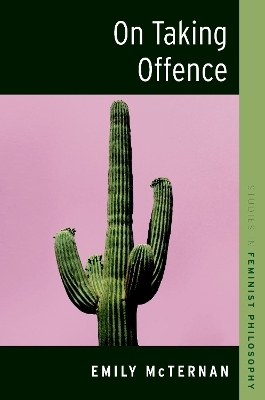
On Taking Offence
Oxford University Press Inc (Verlag)
978-0-19-761310-8 (ISBN)
This book defends the significance of details of our social interactions. Cumulatively, small acts, and the social norms underlying these, can express and reinforce social hierarchies. But by taking offence, we mark an act as an affront to our social standing. We also often communicate our rejection of that affront to others. At times, taking offence can be a way to renegotiate the shared social norms around what counts as respectful treatment. Rather than a mere expression of hurt feelings then, to take offence can be to stand up for one's standing.
When taken by those deemed to have less social standing, to take offence can be a direct act of insubordination against a social hierarchy. Taking offence can resist everyday inequalities. In unequal societies, the inclination to take offence at the right things, and to the right degree, may even be a civic virtue. These right things at which to take offence include many of the very instances that the opponents of a culture of taking offence find most objectionable: apparently trivial and small-scale details of our social interactions.
Emily McTernan is an Associate Professor at University College London. She works on political and social philosophy. She has published work on social norms, equality, civic virtue, infertility, and microaggressions.
Acknowledgements
Introduction
1. Taking offence: An emotion reconsidered
1.1. Philosophers on taking offence
1.2. An analysis of taking offence
1.3. Distinguishing offence
1.4. Rethinking offence: Domestic, not catastrophic
1.5. The limits of offence
1.6. Towards a defence: From victimhood to social standing
2. What taking offence does
2.1. Social standing and the role of social norms
2.2. Taking offence and reinforcing norms
2.3. Taking offence and renegotiating norms
2.4. In defence of negotiating social norms
2.5. On negotiating through offence
3. Do sweat the small stuff: The nature and significance of social standing
3.1. Between excess and deficiency
3.2. Social standing as an equal part I: Why the 'small stuff' matters
3.3. Social standing as an equal part II: The power to set the terms
3.4. In defence of the significance of affronts
3.5. Resisting by taking offence
4. The limits of justified offence: On anger, intent, and uptake
4.1. Anger, offence, and the act
4.2. Contesting offence
4.3. 'But I didn't mean it': On intention and blame
4.4. 'But that's not offensive': Disagreement and the offensive
4.5. When offence lacks uptake
5. Only joking!: On the offensiveness of humour
5.1. Theories of humour and the offensive
5.2. Some linguistics of jokes
5.3. How offensive jokes function
5.4. The riskiness of humour
6. A corrective civic virtue: Weighing the costs and benefits of offence
6.1. Offence as a civic virtue: Arguments from equality and civility
6.2. The costs of offence to the offending party
6.3. Justifying the costs of offence
6.4. Burdens on the offended
7. A social approach, our lives online, and the social emotions
7.1. A regulatory turn
7.2. Taking offence online
7.3. The social emotions beyond offence
Bibliography
Index
| Erscheinungsdatum | 17.05.2023 |
|---|---|
| Reihe/Serie | STUDIES IN FEMINIST PHILOSOPHY SERIES |
| Verlagsort | New York |
| Sprache | englisch |
| Maße | 236 x 156 mm |
| Gewicht | 313 g |
| Themenwelt | Geisteswissenschaften ► Philosophie ► Ethik |
| Geisteswissenschaften ► Philosophie ► Sprachphilosophie | |
| ISBN-10 | 0-19-761310-1 / 0197613101 |
| ISBN-13 | 978-0-19-761310-8 / 9780197613108 |
| Zustand | Neuware |
| Informationen gemäß Produktsicherheitsverordnung (GPSR) | |
| Haben Sie eine Frage zum Produkt? |
aus dem Bereich


